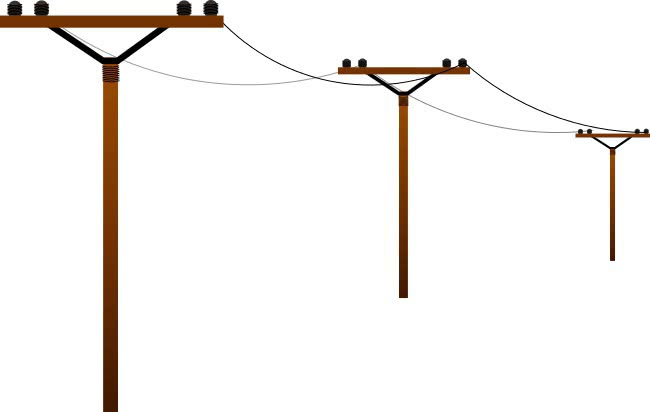 When it comes to operating in China’s heavily regulated energy sector, it helps to have friends in high places. China’s oil companies seem to have such friends, but companies that generate power and sell it to consumers and businesses seem to lack such strong connections. That reality has led many power generators to struggle in recent years, and is leading US power producer AES (NYSE: AES) to look for buyers for its China-based assets, according to a foreign media report. (English article) The development underscores the huge risks of operating in China’s energy markets, where companies can only sell their finished products such as gasoline and power at state-set prices even though they must buy raw materials like crude oil and coal on the open market, where big price swings are common and recent prices have soared due to turmoil in the Middle East and North Africa. According to a media report, AES has recently hired an investment bank to explore a sale of part or all of its China power-generating assets, in a deal that could fetch as much as $400 million. The move would mark a retreat for AES, which is one of the oldest independent foreign power producers in China and now owns around 15 plants in the country. AES and many of its domestic China rivals, which include names like Huaneng (HKEx: 902) and Datang International Power (HKEx: 991), have struggled to earn profits in recent years as China, interested in controlling inflation, has failed to raise its state-set electricity rates in line with soaring prices for coal and crude oil. The system has also hit sellers of refined oil products like Sinopec (HKEx: 386; Shanghai: 600028; NYSE: SNP) and PetroChina (HKEx: 857; Shanghai: 601857; NYSE: PTR), though both of those companies seem to have better connections in Beijing, with the result that the government adjusts its state-set prices for their products more often. AES’ scaleback or withdrawal from the market highlights just how tough China is for both domestic and foreign power producers, and means we’re unlikely to see much new foreign investment in this area in the near future and limited returns for any company that does invest. Any new investment will mostly be limited to government-controlled companies like Datang and Huaneng, which take their orders from the state, making shares in these publicly listed power generators poor investment choices for the near term.
When it comes to operating in China’s heavily regulated energy sector, it helps to have friends in high places. China’s oil companies seem to have such friends, but companies that generate power and sell it to consumers and businesses seem to lack such strong connections. That reality has led many power generators to struggle in recent years, and is leading US power producer AES (NYSE: AES) to look for buyers for its China-based assets, according to a foreign media report. (English article) The development underscores the huge risks of operating in China’s energy markets, where companies can only sell their finished products such as gasoline and power at state-set prices even though they must buy raw materials like crude oil and coal on the open market, where big price swings are common and recent prices have soared due to turmoil in the Middle East and North Africa. According to a media report, AES has recently hired an investment bank to explore a sale of part or all of its China power-generating assets, in a deal that could fetch as much as $400 million. The move would mark a retreat for AES, which is one of the oldest independent foreign power producers in China and now owns around 15 plants in the country. AES and many of its domestic China rivals, which include names like Huaneng (HKEx: 902) and Datang International Power (HKEx: 991), have struggled to earn profits in recent years as China, interested in controlling inflation, has failed to raise its state-set electricity rates in line with soaring prices for coal and crude oil. The system has also hit sellers of refined oil products like Sinopec (HKEx: 386; Shanghai: 600028; NYSE: SNP) and PetroChina (HKEx: 857; Shanghai: 601857; NYSE: PTR), though both of those companies seem to have better connections in Beijing, with the result that the government adjusts its state-set prices for their products more often. AES’ scaleback or withdrawal from the market highlights just how tough China is for both domestic and foreign power producers, and means we’re unlikely to see much new foreign investment in this area in the near future and limited returns for any company that does invest. Any new investment will mostly be limited to government-controlled companies like Datang and Huaneng, which take their orders from the state, making shares in these publicly listed power generators poor investment choices for the near term.
Bottom line: AES’ plans to exit China underscore the difficulties of operating in the country’s power generation market, and bode poorly for rivals like Datang and Huaneng in the near term.
Related postings 相关文章:
◙ Pricey M&A, Cheaper Gas Undermine Sinopec 溢价收购和成品油降价 中石化面对双重利空
◙ Stumbling CNOOC Replaces Chief Executive 中海油换将李凡荣接棒CEO
◙ 2012: The Year of China Resource M&A? 2012:中国企业的资源并购年?

 The latest wrinkle of the Alibaba saga has just unfolded with the company’s announcement of a plan to take its B2B site Alibaba.com (HKEx: 1688) private at a big premium, in what looks like a step before a potential new multibillion-dollar IPO for the entire group. I’m usually not a big fan of this kind of IPO for a parent company with many different business units, as I think listings of separate units is a more transparent way for people to invest in such companies. But in this case, the fact that all of Alibaba’s different pieces are centered around its core e-commerce business may make such a parent-level IPO a smart move, as this could be a rare case where all the pieces collectively might get a better price than the sum of the individual parts. Let’s backtrack a moment and look at the privatization deal, which has the unlisted parent company, Alibaba Group, offering HK$13.5 per Alibaba.com share, a 46 percent premium over the company’s last closing price, valuing the listed company at about $8.7 billion. (
The latest wrinkle of the Alibaba saga has just unfolded with the company’s announcement of a plan to take its B2B site Alibaba.com (HKEx: 1688) private at a big premium, in what looks like a step before a potential new multibillion-dollar IPO for the entire group. I’m usually not a big fan of this kind of IPO for a parent company with many different business units, as I think listings of separate units is a more transparent way for people to invest in such companies. But in this case, the fact that all of Alibaba’s different pieces are centered around its core e-commerce business may make such a parent-level IPO a smart move, as this could be a rare case where all the pieces collectively might get a better price than the sum of the individual parts. Let’s backtrack a moment and look at the privatization deal, which has the unlisted parent company, Alibaba Group, offering HK$13.5 per Alibaba.com share, a 46 percent premium over the company’s last closing price, valuing the listed company at about $8.7 billion. ( There’s a sudden mini-flood of news coming out of the telco space, with new signs that laggards China Mobile (HKEx: 941; NYSE: CHL) and China Unicom (HKEx: 768; NYSE: CHU) are becoming a bit more aggressive in the important 3G and 4G spaces. But as if to counter those signs, China Telecom (HKEx: 728; NYSE: CHA), the smallest of the country’s 3 telcos which also emerged as its most aggressive player last year, has just announced a long-awaited deal with Apple (Nasdaq: AAPL) that will see it start offering popular iPhones on the company’s 3G network early next month. Let’s start with the latest monthly 3G subscriber numbers, which show that Unicom is finally getting serious about that important part of its business, after losing share last year despite its strong technological advantages. The latest figures show Unicom had just over 32 million subscribers at the end of January, boosting its share of the market to 32 percent from 31 percent just a couple of months earlier. (
There’s a sudden mini-flood of news coming out of the telco space, with new signs that laggards China Mobile (HKEx: 941; NYSE: CHL) and China Unicom (HKEx: 768; NYSE: CHU) are becoming a bit more aggressive in the important 3G and 4G spaces. But as if to counter those signs, China Telecom (HKEx: 728; NYSE: CHA), the smallest of the country’s 3 telcos which also emerged as its most aggressive player last year, has just announced a long-awaited deal with Apple (Nasdaq: AAPL) that will see it start offering popular iPhones on the company’s 3G network early next month. Let’s start with the latest monthly 3G subscriber numbers, which show that Unicom is finally getting serious about that important part of its business, after losing share last year despite its strong technological advantages. The latest figures show Unicom had just over 32 million subscribers at the end of January, boosting its share of the market to 32 percent from 31 percent just a couple of months earlier. ( Ctrip (Nasdaq: CTRP) has just released an earnings report that has left investors unsure of what to think of this travel bellwether, though I’m guardedly encouraged by signs that show it is preparing for a future of growing competition. Its latest results show that revenue grew 18 percent in the fourth quarter and is expected to maintain that rate in the current period, but that operating and net profit both fell by similar amounts — not exactly encouraging signs for an industry leader. (
Ctrip (Nasdaq: CTRP) has just released an earnings report that has left investors unsure of what to think of this travel bellwether, though I’m guardedly encouraged by signs that show it is preparing for a future of growing competition. Its latest results show that revenue grew 18 percent in the fourth quarter and is expected to maintain that rate in the current period, but that operating and net profit both fell by similar amounts — not exactly encouraging signs for an industry leader. ( China’s big banks are no doubt suffering new headaches these days after learning over the weekend that Beijing has lowered their reserve requirement ratios, in the latest of a growing series of mixed signals as the government tries to maintain the health of both the banks and the broader national economy at the same time. The latest announcement has seen the banking regulator lower the amount of money that banks must keep in reserve, in a clear signal that the government wants them to lend more to help China maintain its economic growth that has shown recent signs of slowing sharply. (
China’s big banks are no doubt suffering new headaches these days after learning over the weekend that Beijing has lowered their reserve requirement ratios, in the latest of a growing series of mixed signals as the government tries to maintain the health of both the banks and the broader national economy at the same time. The latest announcement has seen the banking regulator lower the amount of money that banks must keep in reserve, in a clear signal that the government wants them to lend more to help China maintain its economic growth that has shown recent signs of slowing sharply. ( Leading solar panel maker Suntech (NYSE: STP) has put out a broadly positive pre-earnings announcement, showing the struggling market may be nearing bottom in its current downcycle as the company also took major moves to control costs. Investors seemed to like what they saw, bidding up Suntech shares more than 8 percent in Friday trading after the news came out, even though shares are still at about a quarter of their levels from 2 years ago. In its earnings pre-announcement, Suntech said its shipments declined 10 percent in the fourth quarter from the third, a bit better than the 20 percent decline it originally expected. (
Leading solar panel maker Suntech (NYSE: STP) has put out a broadly positive pre-earnings announcement, showing the struggling market may be nearing bottom in its current downcycle as the company also took major moves to control costs. Investors seemed to like what they saw, bidding up Suntech shares more than 8 percent in Friday trading after the news came out, even though shares are still at about a quarter of their levels from 2 years ago. In its earnings pre-announcement, Suntech said its shipments declined 10 percent in the fourth quarter from the third, a bit better than the 20 percent decline it originally expected. ( An online discount retailer named Vipshop has taken an early lead in the race to become the first Chinese Internet company to list in the US this year, while the more established Sohu (Nasdaq: SOHU) has set up a new headquarters for its popular video service, laying the groundwork for its own US IPO for the unit. Meantime in other news for US-listed tech firms, IT outsourcing company Camelot Information Systems (NYSE: CIS) has been hit by a second class action lawsuit over a big drop in its share price, in what looks like another major headache for the company. Let’s look at Vipshop first, a relatively small company that is taking the bold move of being the first Chinese web firm to file for a US IPO this year, with plans to raise up to $125 million. (
An online discount retailer named Vipshop has taken an early lead in the race to become the first Chinese Internet company to list in the US this year, while the more established Sohu (Nasdaq: SOHU) has set up a new headquarters for its popular video service, laying the groundwork for its own US IPO for the unit. Meantime in other news for US-listed tech firms, IT outsourcing company Camelot Information Systems (NYSE: CIS) has been hit by a second class action lawsuit over a big drop in its share price, in what looks like another major headache for the company. Let’s look at Vipshop first, a relatively small company that is taking the bold move of being the first Chinese web firm to file for a US IPO this year, with plans to raise up to $125 million. (